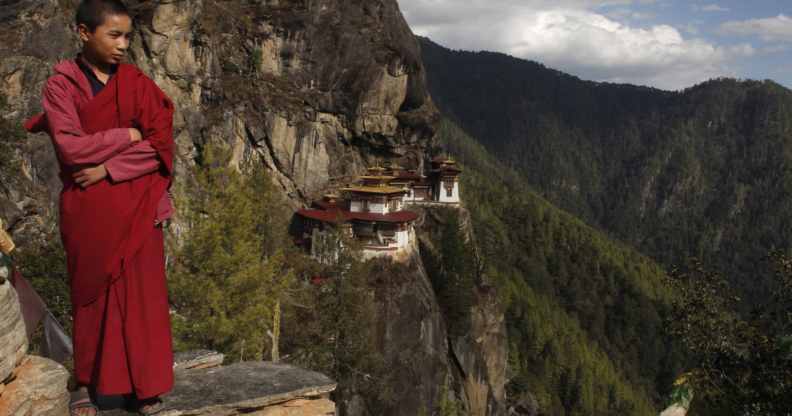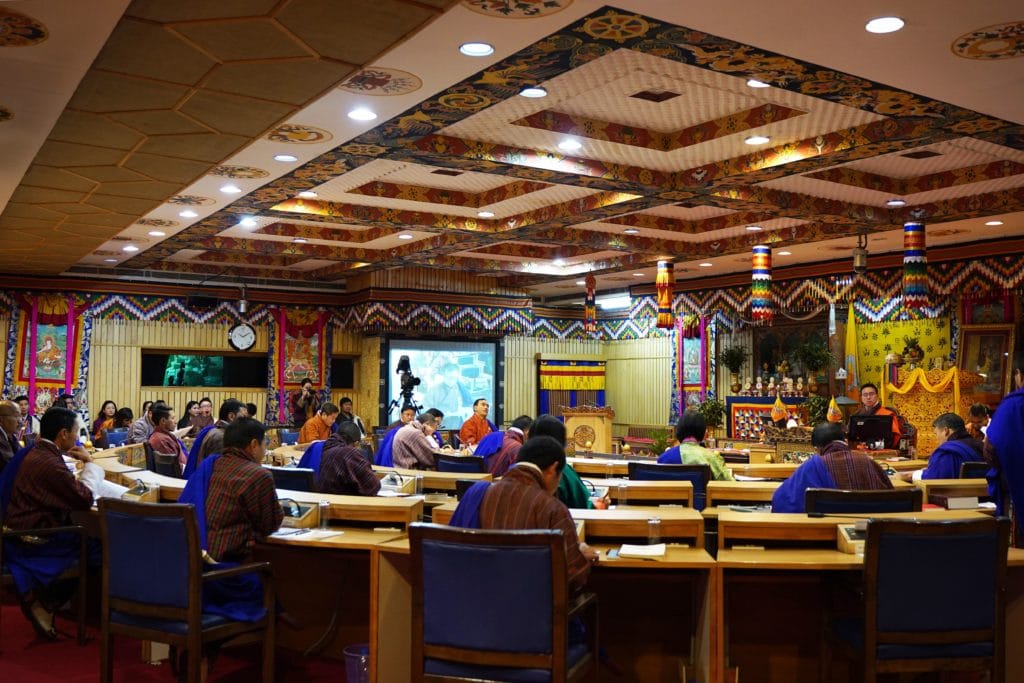Bhutan votes to decriminalise homosexuality in ‘momentous day’ for the tiny Buddhist kingdom

The tiny, Buddhist-majority kingdom of Bhutan has just decriminalised homosexuality. (Paula Bronstein/Getty Images)
Bhutan voted to decriminalised homosexuality Thursday (10 December) in a triumphant end to a year-long legislative struggle by activists and progressive lawmakers.
During a joint sitting of the two houses of the Parliament of Bhutan, lawmakers moved to scrap two provisions of the country’s colonial-era 2004 penal code.
Section 213 and 214 outlawed “unnatural sex”, defined as “sodomy or any other sexual conduct that is against the order of nature”.
It saw homosexuality punishable by a prison sentence of between one month and less than one year. However, there were no known prosecutions under the law.
Sixty-three of the 69 members of the lower National Assembly and the upper National Council voted in favour of amending the code, according to the National Assembly website. Six members abstained.

Members of the national council, Bhutan’s upper house of parliament, debate clauses 213 and 214 of the Penal code of Bhutan that criminalise homosexuality. (Upasana DAHAL / AFP) (Photo by UPASANA DAHAL/AFP via Getty Images)
Centre-right Druk Phuensum Tshogpa lawmaker Ugyen Wangdi, the vice-chairman of the joint panel, told Reuters: “Homosexuality will not be considered as unnatural sex now.”
The changes now must be approved of by the King of Bhutan, Jigme Khesar Namgyel Wangchuck.
Decriminalising homosexuality in Bhutan is a ‘momentous day’, say local activists.
To Bhutan’s fledgling but lively LGBT+ rights activists, the vote was a seismic leap for a country where being LGBT+ is vastly unheard of to some 800,000 citizens.
A predominantly Buddhist nation tucked between China and India and dotted with deep ravines and thick jungles, Bhutan has long been a place where spirituality and tradition are abounding. Monasteries are everywhere and residents are forbidden from climbing up mountain peaks where spirits are said to dwell.
“I think the bill being passed on Human Rights Day itself is a momentous day for everyone in Bhutan,” Tashi Tsheten, director of LGBT+ advocacy group Rainbow Bhutan, said.
“I believe everyone who has stood up for the LGBT+ community in Bhutan is going to celebrate today as this is our victory”.
The move was first pitched by members of the centre-left Druk Nyamrup Tshogpa party last year, with minister of finance Namgay Tshering noting that ditching the provisions must be done to “to keep up with the times”.

